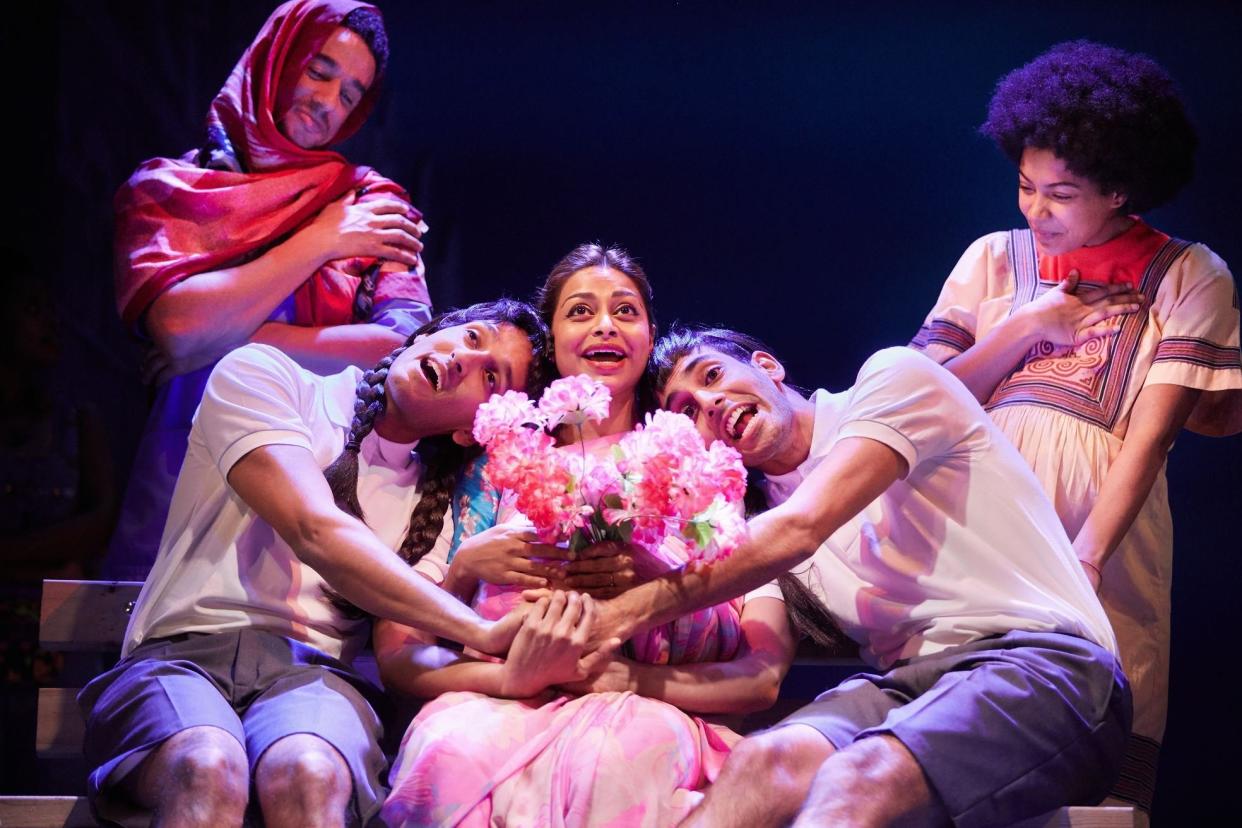White Teeth, Kiln Theatre, London, review: The first ever stage adaptation of Zadie Smith's novel

It’s hard to imagine a closer fit between a show and a theatre. As part of her opening season at the transformed Tricycle (now re-dubbed the Kiln), Indhu Rubasingham has produced the first ever stage adaptation of Zadie Smith’s White Teeth, a novel that is embedded in the Kiln Theatre‘s bustling northwest London communities.
You enter the place from Kilburn High Road to discover that this thoroughfare has been reproduced onstage in a fine receding design by Tom Piper. Smith’s book was such a spectacular critical and commercial success when it was published in 2000 that you may think it odd to that it has taken so long to reach the boards. (The Kiln’s adaptation, by Stephen Sharkey, has been in development for over five years.)
On the other hand, you can see why others may have been daunted at the prospect of grappling as a dramatist with this 542-page behemoth with its teeming hybrid of voices, textures and tones and mixture of sprawl and intricately recurring pattern as it examines questions of immigration, identity and Britishness. It’s clear that Sharkey loves the book – and is steeped in it.
But he pays it the highest compliment in not being rigid with reverence about it. He makes some bold decisions that pay off with a freshness you might not have expected. At the heart of piece, there is still the friendship between Archie Jones (Richard Lumsden) and Bengali Muslim Samad Iqbal (Tony Jayawardena).
The Second World War and their farcically ignominious fortunes with their tank crew first brought them together; now they meet regularly for a drink in O’Connell’s Pool House where there are no pool tables and the owner is Arab.
But this adaptation gives the proceedings a new “back to the future” frame which focuses on the fraught, loving mother-daughter bond between Archie’s half-Jamaican daughter, Irie (Ayesha Antoine), and Rosie (Amanda Wilkin), whom she is expecting as the book closes. Sharkey’s version, set in the present day, imagines that the latter is a now a 25-year-old woman.
On suspecting that she herself has become pregnant, Rosie is pitched into a rewind of the past from which she hopes to glean details of her complicated family history (“complicated – the ‘c’ word”) about which Irie has felt the need to be evasive (the identity of her father, say).
This lengthening of perspective and the tilt of gender are dramatically powerful, as the two women watch from the sidelines men-only scenes and offer their undeluded comments. There’s a witty, fantastical element too. The entire adventure may be the product of a coma that hospitalised Rose when Mad Mary (Michele Austin, brilliantly sly as a crazy pink-clad local character) stabbed a syringe in her thigh.
Rose gives us a snatch of “Coma Chameleon [sic]”. The dozen songs in Paul Englishby’s score don’t possess much personality of their own as they pastiche period styles (a two-of-a-kind vaudeville routine for Archie and Samada; a New Romantics number, etc) but they are amiable and put across with attractive verve by Rubasingham’s 14-strong cast.
Sid Sagar and Assad Zaman are extraordinarily striking as the twins Magid and Millat Iqbal, one of whom rejects his Muslim religion for rationalism, the other of whom takes up a militant version of it.
There is a delectably funny account of a PTA meeting during which Samad questions the cultural relevance of the Harvest Festival – asking to the slight embarrassment of the room where it says in the Scripture “thou shalt go the back of thy cupboard” and hunt out a tin of spaghetti hoops to give to the poor. What is remarkable about the scene is its good-heartedness. You can’t be dogmatic about melting pots.
You raise a cheer for Smith – and for this lively, light-footed adaptation – that they know how to celebrate the gooey mess that ends up sticking to the bottom.
To December 22. Tickets are available here


